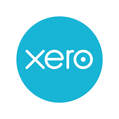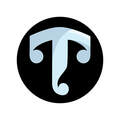New Zealand is committed to an international initiative to counter the impact of criminal activity on people and economies within the global community. This is encased in New Zealand’s Anti-Money Laundering and Countering Financing of Terrorism Act 2009, or AML/CFT law.
Why is this important? The Act requires accountants to be undertaking a number of tasks designed to help combat money laundering and terrorist financing, and to aid the police in bringing the criminals who do it to justice. Accountants have been included as it has been deemed that many of our services may be attractive to those involved in criminal activity.
Under the Act we assess the risk they may face from the actions of money launderers and people who finance terrorism and must identify potentially suspicious activity. To make that assessment, we must obtain and verify information from prospective and existing clients about a range of things. This is part of what the law calls customer due diligence.
Customer Due Diligence Requirements
Customer due diligence requires that we implement controls, policies and procedures to identify and assess risk, know our clients and report suspicious activities to the authorities if we have concerns. Accountants must take reasonable steps to make sure the information they receive from any client is correct and we will ask for documents that show that information.
Under the Act we will need to obtain and verify certain information from you to meet our legal requirements, including your full name, date of birth and address. To confirm the information we will ask for documents such as your driver’s licence (front and back) or Government Issued Passport and documents that show your address – such as a utility bill.
We will also need to ask you about the nature and purpose of the proposed work you are wanting to undertake. In addition information confirming the source of funds for a transaction may also be necessary to meet our legal requirements if it is not apparent as to where the funds are coming from.
If you are seeing us about company or trust business, the information we need is more extensive as we will need information about the company or trust including the people associated with it (such as directors and shareholders, trustees and beneficiaries).
If you cannot provide the relevant documents we may not be able to either provide the services you required or may not be able to act as your accountant.
Why is this important? The Act requires accountants to be undertaking a number of tasks designed to help combat money laundering and terrorist financing, and to aid the police in bringing the criminals who do it to justice. Accountants have been included as it has been deemed that many of our services may be attractive to those involved in criminal activity.
Under the Act we assess the risk they may face from the actions of money launderers and people who finance terrorism and must identify potentially suspicious activity. To make that assessment, we must obtain and verify information from prospective and existing clients about a range of things. This is part of what the law calls customer due diligence.
Customer Due Diligence Requirements
Customer due diligence requires that we implement controls, policies and procedures to identify and assess risk, know our clients and report suspicious activities to the authorities if we have concerns. Accountants must take reasonable steps to make sure the information they receive from any client is correct and we will ask for documents that show that information.
Under the Act we will need to obtain and verify certain information from you to meet our legal requirements, including your full name, date of birth and address. To confirm the information we will ask for documents such as your driver’s licence (front and back) or Government Issued Passport and documents that show your address – such as a utility bill.
We will also need to ask you about the nature and purpose of the proposed work you are wanting to undertake. In addition information confirming the source of funds for a transaction may also be necessary to meet our legal requirements if it is not apparent as to where the funds are coming from.
If you are seeing us about company or trust business, the information we need is more extensive as we will need information about the company or trust including the people associated with it (such as directors and shareholders, trustees and beneficiaries).
If you cannot provide the relevant documents we may not be able to either provide the services you required or may not be able to act as your accountant.



